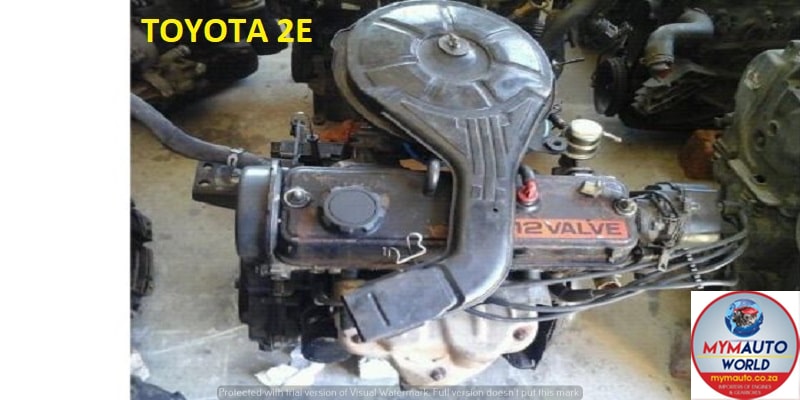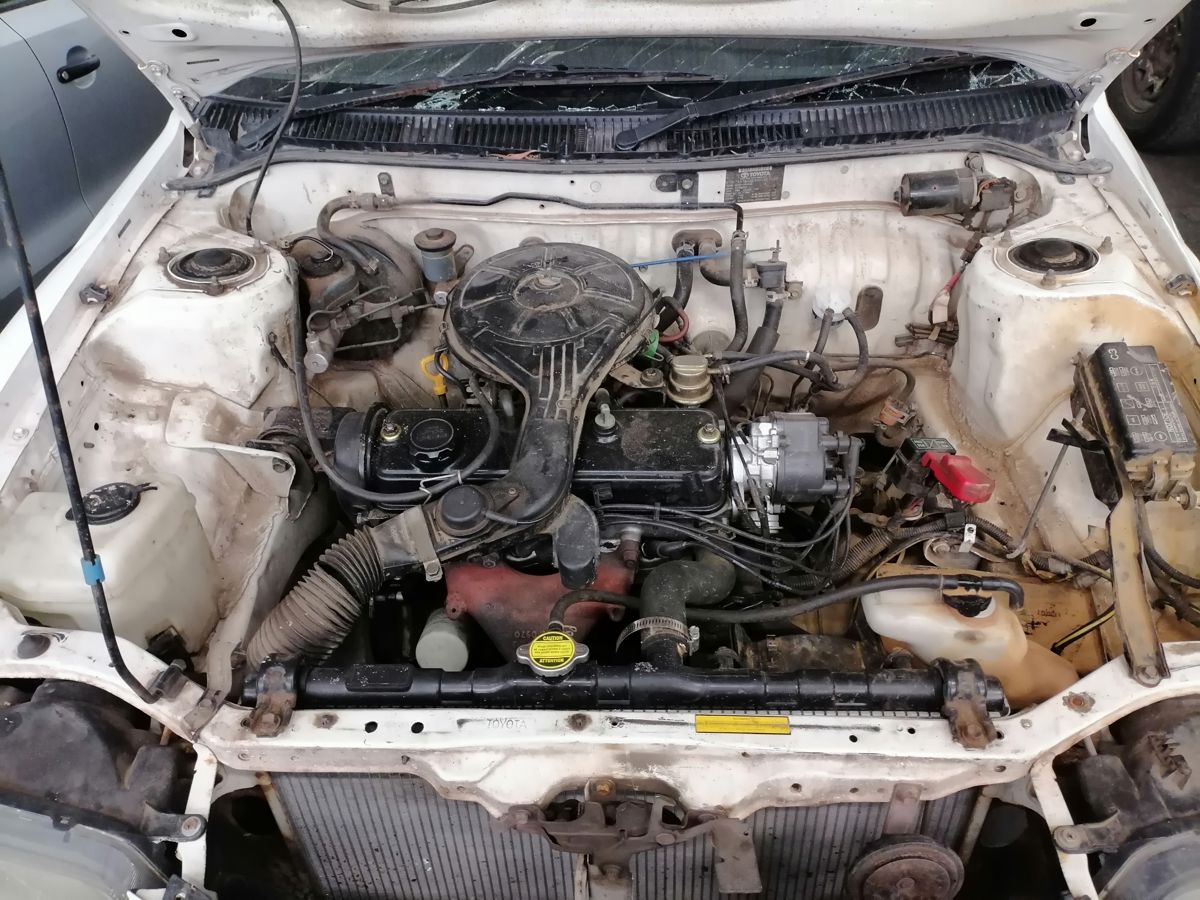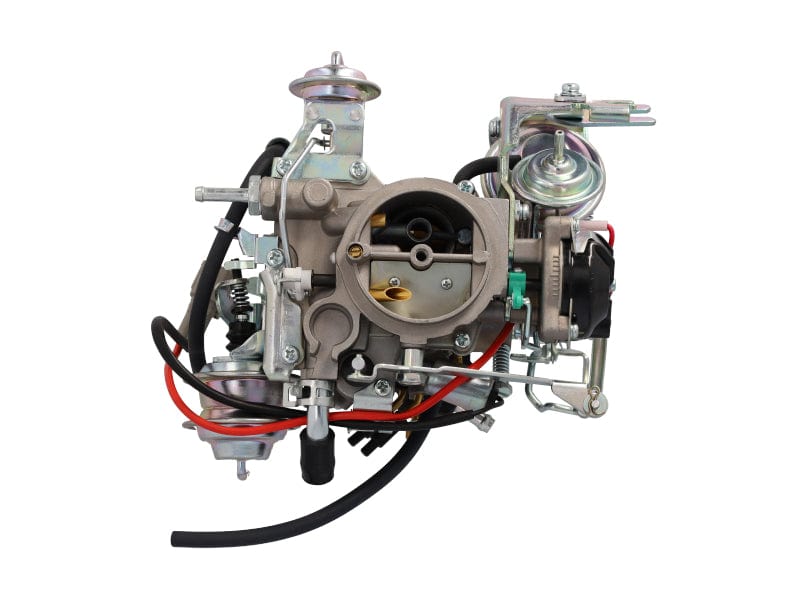Toyota Tazz: A Compact Car That Offers Big Value and Long-Term Durability
Toyota Tazz: A Compact Car That Offers Big Value and Long-Term Durability
Blog Article
Explore the Most Current Fads in Engine Technology With Tazz
In the quickly developing landscape of automotive modern technology, Tazz stands at the center, highlighting substantial improvements in engine systems that prioritize both innovation and sustainability. From crossbreed engines that enhance fuel performance to the introduction of hydrogen fuel cells, the fads forming modern powertrains are not just improving performance however also resolving important environmental challenges.
Crossbreed Engine Innovations
Hybrid engine technologies represent a pivotal change in automotive modern technology, integrating the advantages of interior burning engines with electric propulsion systems. This assimilation not only boosts fuel performance however also minimizes emissions, meeting significantly strict ecological policies. By making use of both energy resources, hybrid engines can optimize performance, supplying power when needed while preserving fuel throughout much less demanding driving problems.
Recent developments in crossbreed technology include renovations in battery efficiency and regenerative braking systems. These technologies enable better energy recovery throughout slowdown, which can be redirected to help in velocity or power accessory systems. Suppliers are focusing on lightweight materials and small layouts to make the most of the effectiveness of hybrid powertrains.
The advancement of plug-in crossbreeds has actually additionally expanded the market, enabling chauffeurs to bill their vehicles utilizing common electric outlets. This function often allows for significant all-electric range, further decreasing dependence on traditional gas. tazz. As the auto sector remains to advance, hybrid engine modern technologies are anticipated to play an essential role in bridging the gap in between standard automobiles and completely electric models, providing a transitional solution that provides to varied consumer needs and choices
Breakthroughs in Electric Powertrains
The vehicle landscape is quickly developing, with electric powertrains becoming a leading pressure in sustainable transportation. Advances in electrical automobile (EV) innovation are considerably enhancing user, efficiency, and efficiency experience. Secret developments consist of enhancements in battery chemistry, which have actually boosted energy thickness, reduced billing times, and extended total battery life.
Solid-state batteries, for example, assure to reinvent the marketplace by supplying greater security and efficiency contrasted to traditional lithium-ion cells. Moreover, advancements in regenerative stopping systems are enabling automobiles to recover power throughout deceleration, adding to overall effectiveness.
In enhancement to battery technology, electric motor layouts are ending up being a lot more innovative. Developments such as incorporated electric motors and advanced thermal management systems are assisting to maximize power delivery and decrease weight, eventually boosting lorry dynamics.

Jointly, these advances underscore the dedication to change in the direction of cleaner, a lot more effective transportation services, positioning electrical powertrains at the center of vehicle advancement.
The Increase of Hydrogen Fuel Cells
Progressively, hydrogen fuel cells are gaining traction as a sensible choice to standard internal combustion engines and battery electrical automobiles. This innovation utilizes the chemical energy saved in hydrogen, transforming it right into power via an electrochemical response with oxygen. The primary result of this procedure is water, making hydrogen fuel cells an eco friendly option with absolutely no emissions at the tailpipe.

Automakers are progressively buying hydrogen gas cell modern technology, identifying its potential for long-range applications and rapid refueling abilities that equal standard gas. In addition, sectors such as heavy-duty transport and public transit are particularly well-suited for hydrogen fuel cells, where battery electric services may fail because of weight and array restrictions.
As study and financial investment remain to broaden, hydrogen fuel cells are poised to play a considerable function in the future landscape websites of tidy transportation and energy options.
Enhancements in Internal Combustion Engines
Technologies in inner combustion engine (ICE) innovation are transforming standard vehicles to satisfy modern ecological requirements and efficiency expectations. One of the most significant improvements involves the assimilation of innovative gas shot systems. These systems maximize the air-fuel combination, boosting combustion efficiency and resulting in lowered exhausts. Direct fuel shot, as an example, permits better atomization of gas, causing more complete burning and improved power output.
In addition, turbocharging has gained prestige, allowing smaller sized engines to deliver greater performance without the weight of bigger engines - tazz. This technology not just increases performance but additionally adds to decrease fuel usage. Variable shutoff timing systems are likewise being improved, enabling engines to adjust to numerous driving conditions for boosted torque and responsiveness
Furthermore, the usage of lightweight products in engine construction is coming to be basic, more enhancing fuel performance by reducing general lorry weight. Engine control units (ECUs) are progressively innovative, enabling real-time modifications that maximize performance and discharges.
These improvements jointly represent an essential change in ICE technology, aligning with worldwide sustainability objectives while still providing the performance motorists anticipate from their cars. As the market advances, these enhancements proceed to form the future of traditional automobile design.
Future Trends in Engine Efficiency
Significant developments in engine effectiveness are expected as suppliers concentrate on incorporating cutting-edge technologies to meet strict environmental policies and consumer demands. The shift towards electrification, hybrid systems, and different gas is improving the auto landscape, driving technologies that boost gas economic situation and lower exhausts.
Among the crucial patterns is the application of sophisticated materials and manufacturing techniques. Lightweight compounds and high-strength alloys add to decreased vehicle weight, thus boosting total effectiveness. Furthermore, the adoption of turbocharging and variable shutoff timing modern technologies permits enhanced power output from smaller sized engines, better improving fuel economic situation.

Conclusion
To conclude, the expedition of engine modern technology reveals significant developments that focus on sustainability and effectiveness. Technologies in hybrid engine systems, electrical powertrains, and hydrogen fuel cells show a commitment to decreasing exhausts while enhancing performance. Furthermore, enhancements in inner burning engines and a focus on lightweight products contribute to general engine performance. As the auto industry remains to develop, these patterns will certainly play an essential function fit a cleaner and even more lasting future for transport.
From hybrid engines that optimize fuel efficiency to the development of hydrogen fuel cells, check my site the trends shaping Click This Link modern powertrains are not only enhancing performance but also addressing crucial environmental challenges.Crossbreed engine innovations stand for a crucial change in vehicle innovation, integrating the benefits of internal burning engines with electrical propulsion systems.Furthermore, turbocharging has acquired prominence, permitting smaller sized engines to provide higher performance without the weight of bigger engines. Furthermore, the adoption of turbocharging and variable valve timing modern technologies permits for enhanced power outcome from smaller engines, better improving fuel economy.
Renovations in interior combustion engines and an emphasis on lightweight materials add to general engine efficiency.
Report this page